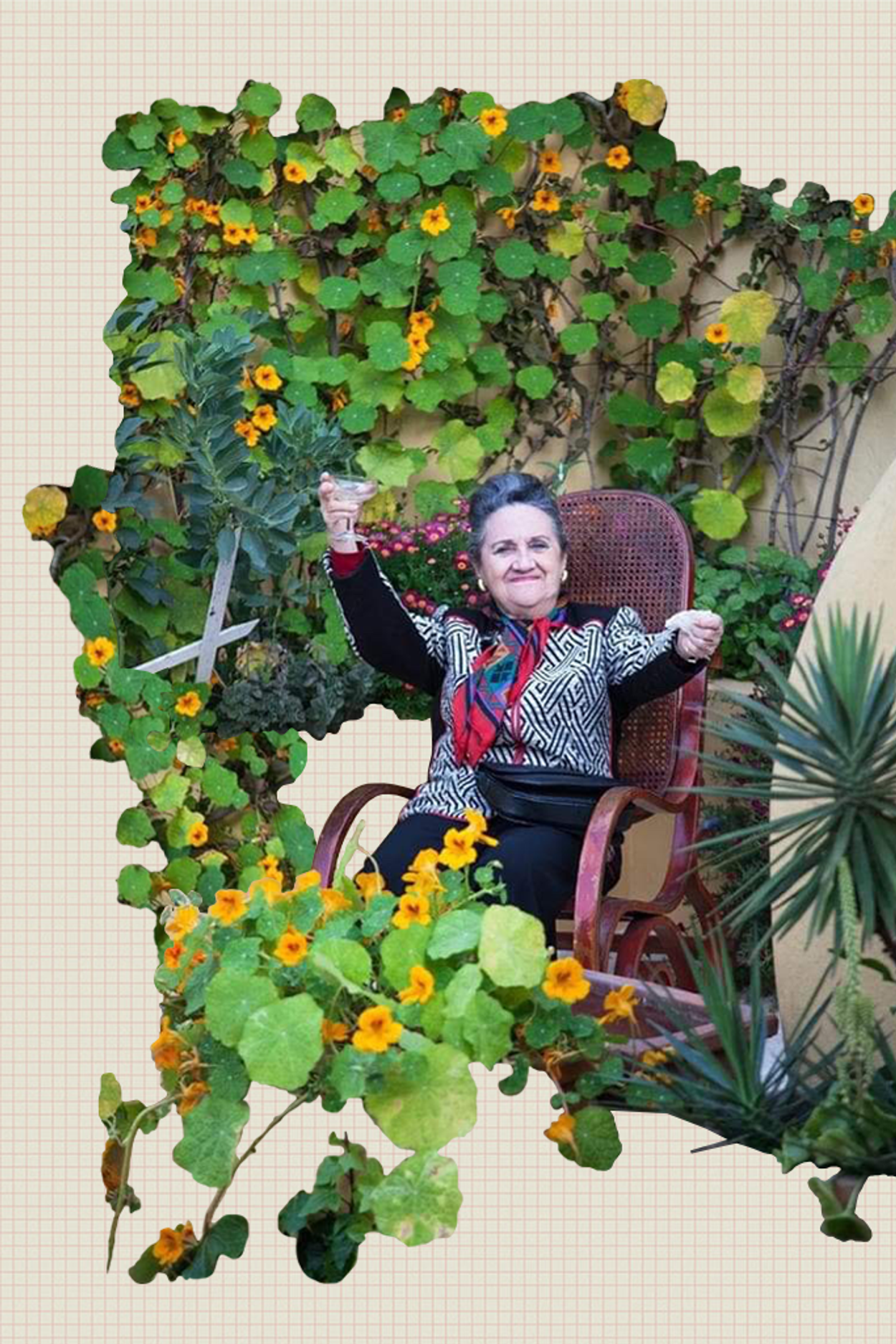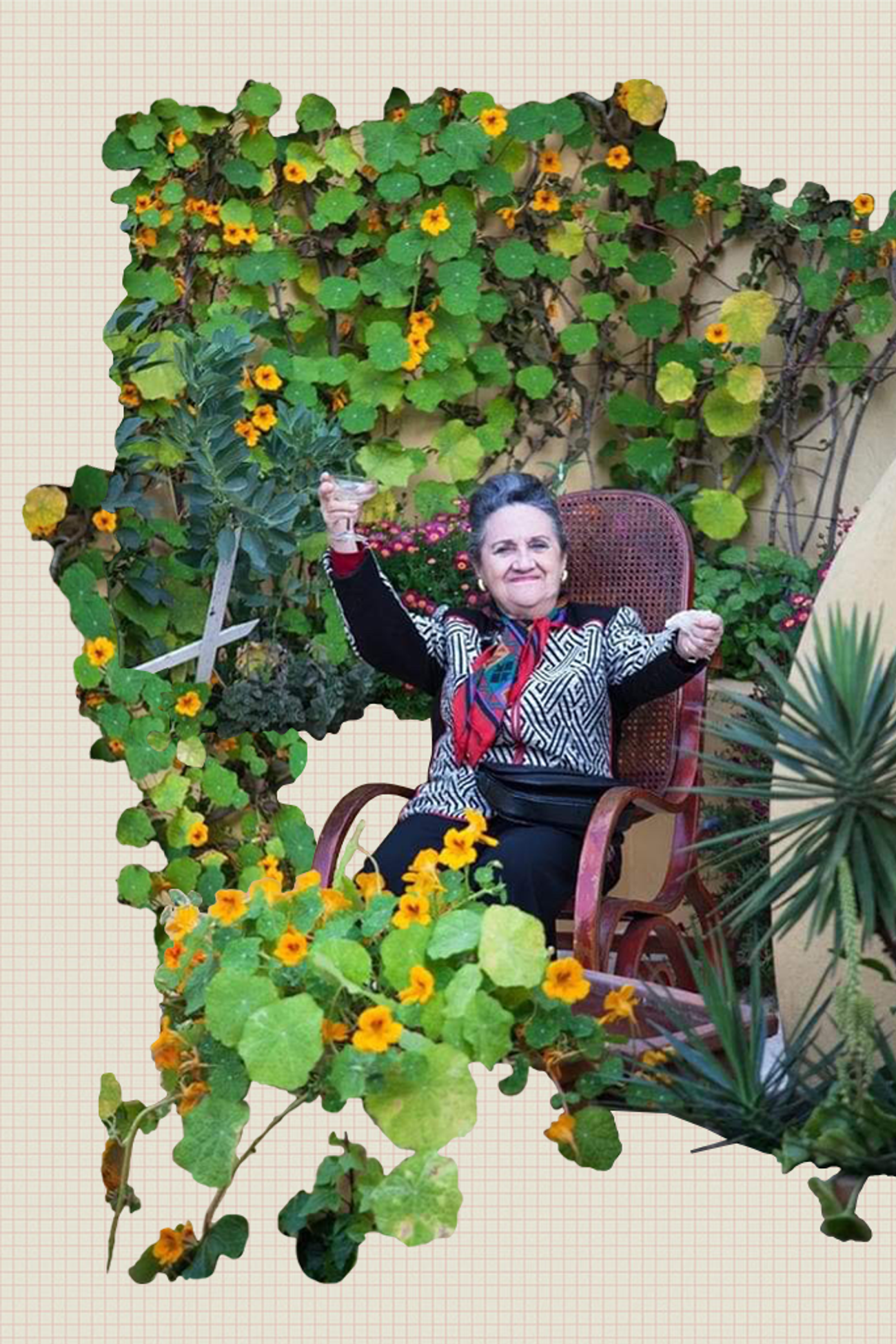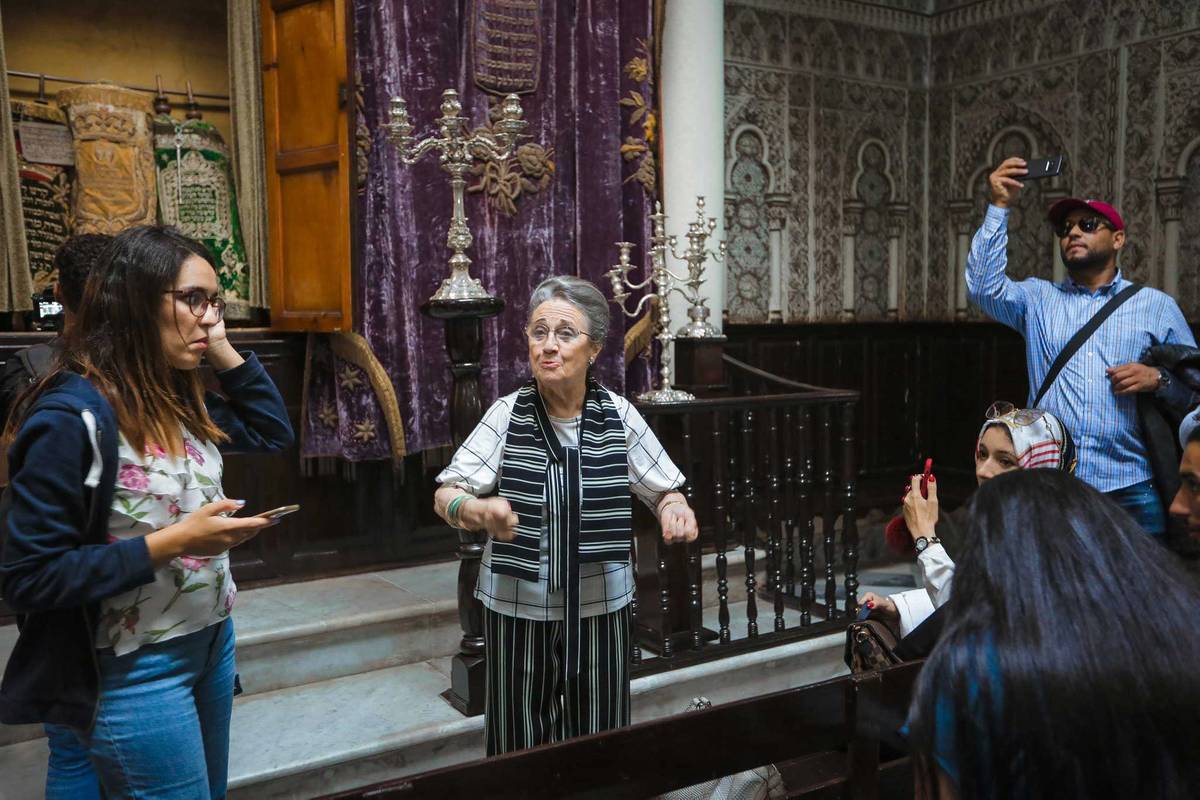We Are Not Gold Coins
On the death of Rachel Muyal, doyenne of Moroccan Jewry




On Jan. 29, 2020, Rachel Muyal was buried in Tangier. Her funeral brought together the crème of the city’s cultural landscape, including the consuls of France and Spain, the head of the American Legation, Moroccan intellectuals and journalists, Spanish, French, and American writers and students as well as the few Jews remaining in the city. In a city with a dwindling Jewish population, Muyal was one of the lucky few in recent years to have had the necessary minyan so that the Kaddish could be said.
Rachel, who was 87 years old when she died, was the only public-facing female Jewish intellectual left in Morocco. She embodied a world of deep tradition within an erudite and multilingual world. As a young bride, she divorced few months after her marriage, finding her husband to be boring. She decided to remain unmarried and childless in a patriarchal society where marriage and children give women their status. Her standing as a fixture in the bohemian culture of Tangier and her continuing and militant opposition to the Islamization of her beloved city made her an active participant in cultural events until the very end of her life. With her passing, a page has turned.

Rachel embodied the tightrope balance that public-facing Jews master in the Muslim world, maintaining her “Tangerine” Judaism of being open to the world, while nurturing her identity as a Jew and a professional woman. Her job as manager of the Librairie des Colonnes made her the de facto gatekeeper for the American counterculture writer Paul Bowles. Her living room hosted Bowles, Jean Genet, Mohamed Choukri and Tahar Ben Jelloun. She was the public face of a moment in history that is rapidly escaping the lived experience of younger generations of Moroccans.
During the last years of her life, Rachel often mentioned her desire to write a book about the Jews of Tangier and the city’s openness. She often repeated, we lived juntos pero no revueltos, together but not mixed—as in not intermarried. And she once confided to me, “As a divorced woman, I had many proposals from all sorts of men, and very powerful ones at that. I had to become very creative in finding ways to say no.”
Her life was in some ways reminiscent of the Judeo-Spanish song “El Romance de Sol” that was sung in her home on Passover by the rabbi’s wife when they came for lunch. The song tells the story of the beautiful Jewish virgin martyr from Tangier, Sol Hachuel, or Solika, a poor and pious adolescent who preferred death as an accused apostate over conversion to Islam and marrying the sultan. Jewish women in northern Morocco have been singing this song since the 1940s to teach the younger generations not to succumb to assimilation or intermarriage. The main line that is seared into everyone’s memory says, I was born a Jew and will die a Jew.
In the last years of her life, Rachel finally did write her memoirs. On the first day of Passover 2019 she launched La mémoire d’une Tangeroise to a standing room-only crowd during the International Book Fair in Tangier. As she was signing books, the palace’s secretary came over and told her to be ready at 7:30 in front of her house for a car to come and pick her up. She declined, claiming exhaustion, but was reminded that no was not an acceptable answer for the royal family.
She told me, “I am an expert in pushing food that I can’t eat around my plate, so I wasn’t too worried about going to the palace the night of the second Seder, I wouldn’t eat what was forbidden.”
What transpired that night in the Royal Palace of Tangier with four Moroccan Jews and four Muslims of the Alaouite dynasty sheds light on the inner core of Moroccan Judeo-Muslim relations. As the guests were seated at the table, Rachel saw to her surprise that each setting had a Passover Hagaddah by its side. Waiters strode in carrying covered silver platters over their heads.
“When they uncovered them, the full Seder plate was revealed, karpas, maror, haroset, matzo, everything!” she told me. “We did the full Seder, we did not skip a word, we sang the bibilu, ha lahma anya and did all the plagues, nothing was skipped over. I couldn’t believe it. I guess the royal family wants to connect to our glorious moments. And as I was sitting there, I could see the phantoms of the previous sultans walking by. I could see Moulay Abdelaziz, who reigned from 1894–1908 and died in 1943 in Tangier. His grandson was sitting with us at the table that night. I kept on thinking, ‘we are doing Passover, our Jewish moment of royalty, sitting at a true royal table, a table of kings.’ In Tangier we Jews call our children mi rey ‘my king’ because we consider all our descendants to be royalty.”
In an interesting twist of fate, the festival day on which El Romance de Sol was sung in her childhood home was the same day where on her last Passover celebration she sat at a royal table celebrating a completely kosher Passover with royalty—juntos pero no revueltos.
A year earlier, Rachel had finished shooting a documentary film on the history of the Sephardim of northern Morocco fully financed by Spanish television, Tu boca en los cielos (Your Wishes in Heaven). In the documentary, Rachel thanks Ferdinand and Isabella, the Spanish Catholic monarchs, for the Expulsion. The film ends with her trip across the strait to their tomb in Granada, where she placed a letter written in her own hand telling the royal couple that their decision was for the best, because the life of the Spanish diaspora had proven to be rich and meaningful for hundreds of thousands of Sephardim. She did not regret the expulsion, and was happy to be in Morocco.
Rachel told me that close friends and family members had criticized her bitterly for making the film. I did not dare criticize her, as she was known for her biting temper, but I had also been disappointed at her support of what I believe to be a missed educational moment for Spain, and a tacit approval of the Expulsion of the Jews by Spanish television.
Yet as I thought about the film, and Rachel’s experience of Moroccan Judaism I realized that these opposing relationships to Sephardi experience clearly show the public and private relationship that Spain and Morocco and their ruling classes have to Jewish history today.
While Spain offers citizenship to Sephardim around the world hoping for added investment and tourism, they whitewash the horror experienced by Sephardim during the Expulsion and its aftermath. During the 2020 pre-Lent carnival celebrations in Spain, two Holocaust-themed floats shocked the world because of the callous manner in which Jewish suffering was portrayed.
It is true that the Spanish foreign minister did eventually condemn the floats after receiving a complaint from the Israeli ambassador. The question that remains is, how could the public servants that organized these events not realize how offensive their treatment of the horror of the Holocaust was? How could these complex choreographies of mockery of the Jewish dead have passed through multiple rehearsals before government officials, with nobody sounding an alarm? Nor is Spain alone in Europe in its callous treatment of Jewish suffering as a joke for which Europeans bear zero moral and historical responsibility.
Almost simultaneously, Morocco is deepening its study of Moroccan Judaism and Judeo-Muslim symbiosis through the recently opened Haim and Celia Zafrani International Research Center on the history of relations between Judaism and Islam and Beit Dakira, the house of memory, spearheaded by the counselor to the king of Morocco, André Azoulay. On Jan. 15, 2020, King Mohammed VI traveled to Essaouira for an official opening and, in a first in Moroccan history, asked to see and touch the Torah scrolls when the ark was opened. He was blessed in Hebrew, Arabic, and French, and the ceremony showing the king granting time and respect to Morocco’s Jewish legacy was broadcast on prime-time national news.
Ten years ago, a few days before Purim in 2010, I was in Tangier. Having just spent a couple of days in neighboring Tetuan to attend the pilgrimage for Tzadik Rabbi Itzhak Bengualid, I stopped in Tangier to see the Jewish community. This pilgrimage celebrates the rabbinic judge who urged the Jews of Tetuan to accept the first Alliance Israélite School, beginning the domino effect of what became a pan-Mediterranean phenomenon of the Europeanization of Jewish children’s education. His historic decision changed the trajectory of Sephardi Jews throughout the whole Mediterranean, eventually allowing for figures such as Rachel to exist. It is telling that the first AIU schools were in northern Morocco, a community known for its continuous contact with Europe and its high level of religious observance.
On this trip to Tangier, the first since I had given birth four months earlier, I saw the then-77-year old Rachel Muyal. As we sat in her art deco living room overlooking the Boulevard Pasteur, Rachel disappeared into her bedroom and came back with a gift for my son David in her hand. She pulled out a small square box with a tiny gold coin inside it, and said to me:
This is for your son David. My uncle [who was one of Tangier’s mohels] would go to the money-changers erev Purim and buy a gold coin from a different country to give me la krada de Purim, a money-gift for children. It should always remind you that “no somos monedita de oro,” we are not a gold coin—that everyone will like us. There will inevitably be someone that doesn’t like you, what you say or do. I always keep that in mind. Because of that, I have learned to say and do what I believe, no matter what others think.
Maybe what Rachel Muyal, who was not shy in expressing her allegiances in a very loud and clear voice, had concluded over the course of her life, and wanted people to see in the Spanish film, was that Morocco was indeed “better for the Jews.” In Morocco it was possible for her, a nonmarried Jewish woman, who was a minority many times over, to interact with international literary, cultural, diplomatic, and political figures, and be accepted.
Rachel has left this world, but not before telling us her Tangerine truth, of Morocco’s deeply cherished place within the heart of Sephardim and the deeply cherished place of the Jews within the heart of Morocco. No somos monedita de oro, but we will continue to speak our truth, no matter what.
Vanessa Paloma Elbaz is Research Associate at the Faculty of Music at the University of Cambridge.